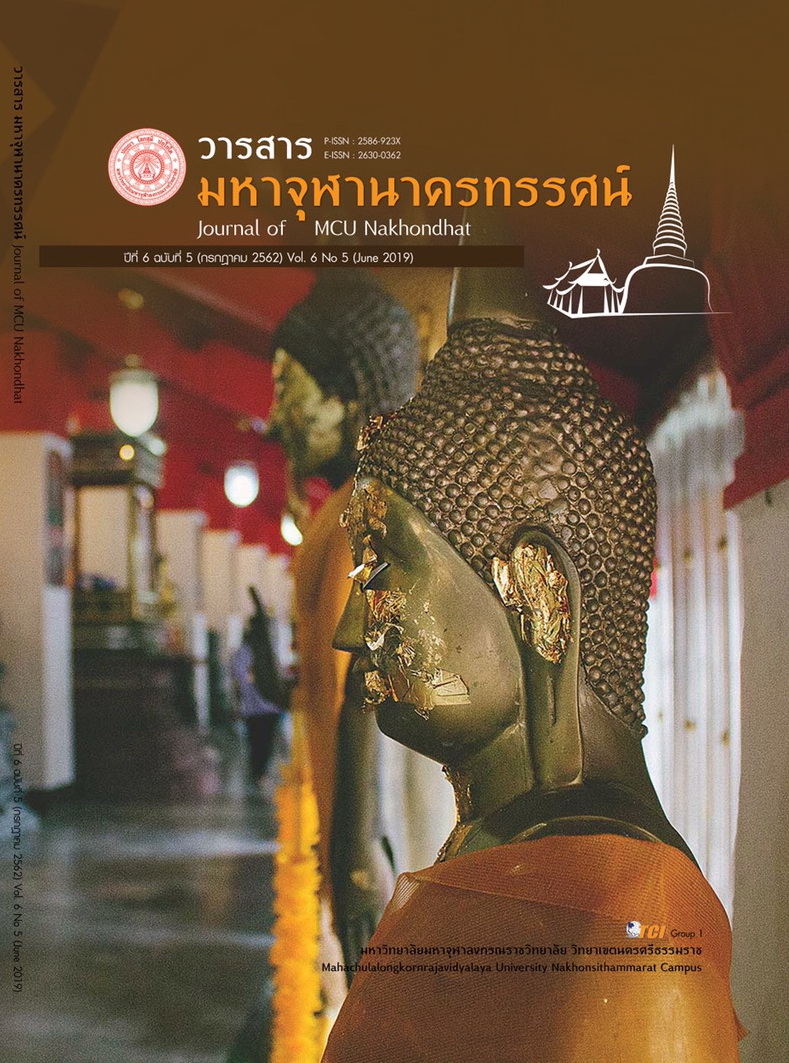THE ECONOMIC IMPACT OF THAILAND ON MARIJUANA ADDICTION STATUS
Main Article Content
Abstract
This research aims to study the economic impact of Thailand on marijuana addiction status. The main objective is 1. Study and analyze the economic impact of Thailand in the state of drug abuse in marijuana. 2. Analyzing and comparing the laws relating to the reduction of criminal offenses against the use of drugs in Thailand, Germany, Portugal, etc.
The study found that the impact of the Thai economy on the status of drug addicts of marijuana which resulted from the criminal dimension and blocked the way of using drug as medical and recreational means. These affected the Thai economy system and also caused the cost of crime suppression in the criminal justice system. Moreover, the country could lose a lot of opportunities to improve the economy.
The Suggestion is Solutions to reduce the economic impact and create opportunities for Thailand to have income from cannabis plants Therefore must allow to be able to apply marijuana for medical and recreational use under the control conditions in criteria of the substance, type and quantity, as well as the permission to produce, sell in various types of products under the control of the government to promote the economic dimension of the state economic to have income and also able to collect taxes as well Hopefully, this will reduce the expenditure of the criminal justice system. By adjusting the legislative policy for the reduction of criminal offenses and setting conditions for control of consumption and enacting laws relating to the determination of state income from marijuana plants in various ways.
Article Details
References
ธานี วรภัทร์. (2561). 9 กฎทองของกฎหมายยาเสพติดช่วงเปลี่ยนผ่าน. วารสารกำลังใจ, 6(2), 36-42.
ธานี วรภัทร์. (2562). ผลกระทบทางเศรษฐกิจของไทยในสถานะผู้เสพสารเสพติดประเภทกัญชา. กรุงเทพมหานคร: มหาวิทยาลัยธุรกิจบัณฑิตย์.
มานพ คณะโต และคณะ. (2559). รายงานการวิจัยเอกสารนโยบายและการจัดการปัญหากัญชา: กรณีศึกษาประเทศอังกฤษและสหรัฐอเมริกา. ใน แผนงานภาคีวิชาการสารเสพติด (ภวส). จรัลสนิทวงศ์การพิมพ์ .
ศูนย์เทคโนโลยีสารสนเทศ กรมราชทัณฑ์. (2561). สถิติผู้ต้องขัง. เรียกใช้เมื่อ 1 ธันวาคม 2561 จาก http://www.correct.go.th/rtnew103/filepdf/1514192028.pdf
สมยศ กิตติมั่นคง. (2559). กัญชา คือยารักษามะเร็ง. กรุงเทพมหานคร: โก กรีน (สำนักพิมพ์).
Laura Rued. (2019). Who Recommends Removing Cannabis from The Dangerous Narcotic Drug List. เรียกใช้เมื่อ 17 มีนาคม 2562 จาก https://www.kannabia. com/en/blog/who-recommends-removing-cannabis-dangerous-narcotic-drug-list


